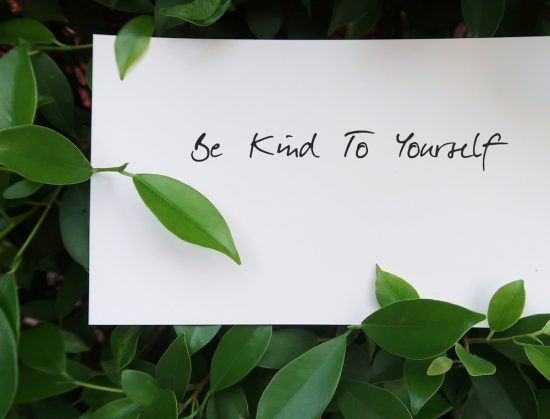Compassion often comes naturally towards other people – we are typically taught from a young age to be nice or kind towards others and how to do this. However, we are not always taught how to be kind to ourselves.
Self-criticism can come easily and be activated by events like:
- Making a mistake
- Feeling stressed, uncomfortable, or unhappy in some way
- Parenting in a way that you’re not happy with (for example, yelling)
- Feeling bad about yourself (whether that’s your appearance, actions, low self-esteem, or something else)
- Having negative feedback from others
- Doing poorly on a task (or not perfectly – it doesn’t always need to be poorly, particularly if you’re a perfectionist)
- Doing something new
- Doing a task under pressure, such as an exam or presentation
These events can trigger self-criticism, where your mind starts saying (or shouting) mean things. This can include thoughts like:
- not good enough
- failing
- unlovable
- bad mother
- bad person
- and more…
Self-criticism usually makes you feel even worse, such as guilty, worried, anxious, angry, and other negative feelings, on top of the original stress. It takes a toll and can make things more overwhelming.
Self-compassion is one theme that I’ve been talking about lately, and practising it can help with self-criticism. (I’ve called it a practice as it takes work and can feel uncomfortable when you start. Not to mention, self-criticism has often been practised over the years, so internalising a compassionate response also takes practice.)
There are many ways to practice self-compassion. Visualising it. Thinking it. Speaking it. Protecting yourself from a threat. Soothing yourself when distressed. Holding yourself. Sending yourself kind energy. Accepting yourself and your pain.
A straightforward way to practice thinking, speaking, or journalling self-compassion can be done in three steps:
1. Observe what is happening for you
How do you feel?
Name this emotion, and notice it without judgment.
For example:
‘I notice I’m feeling worried’
‘Here’s a feeling of stress’
2. Common Humanity
Recognise that you feel this way because you’re human, and this is part of the human condition. You’re not alone in being distressed, even if you feel alone with your pain. Remind yourself:
‘I”m not alone in feeling this way’
‘Other people have also felt this way’
‘I saw Donna also feeling stressed by this – so it’s not just me’
‘No one is perfect or happy all the time’
3. Kind Words
Say something gentle, kind, or compassionate. This is where you practice being kind to yourself for being imperfect, much like you would for someone else. Examples can include:
‘May I be gentle with myself’
‘I can learn to accept these feelings’
‘This difficulty won’t last forever – I will get through it’
‘May i support myself through this challenge’
‘I will practice coping, kindly’
Or reflect on: What would I tell a friend in the same situation? (This often makes it easier to access compassionate statements for yourself.)
Pick one statement under each step (Observing, Common Humanity, & Kind Words) and think, write, or say them aloud when you’re feeling some type of way. Or you may work on developing your own statements under each category.
It’s easy to be kind to others; and it’s a wonderful step to start cultivating kindness towards yourself, particularly when you’re having a hard time.

